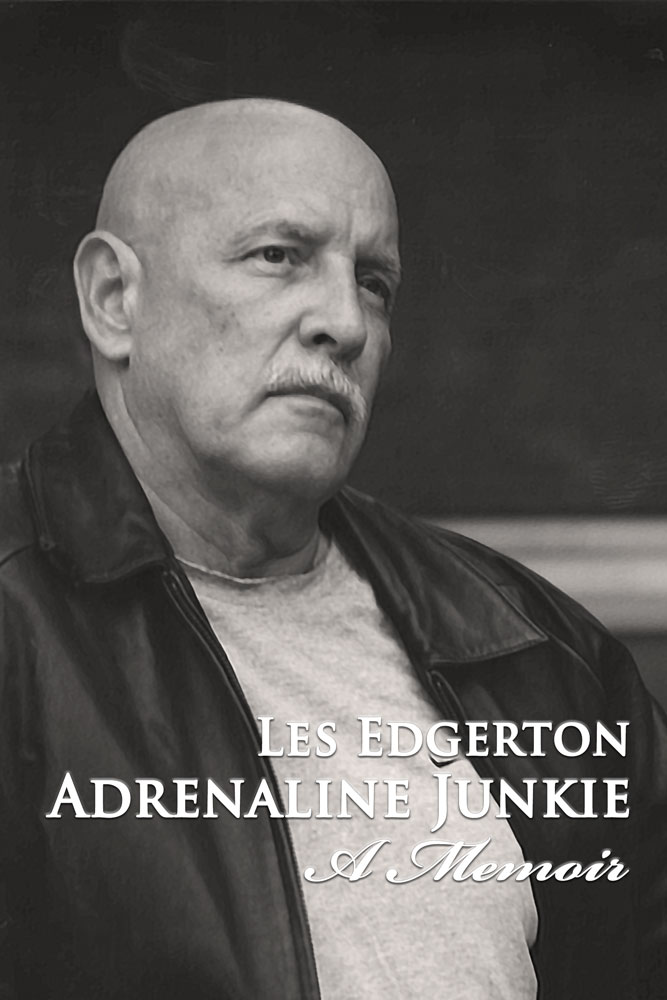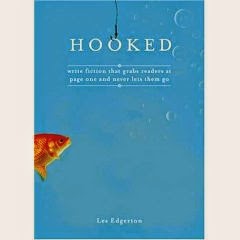Monday, April 5, 2010
THE RUBBER DUCKY
(From Sydney Lumet’s and Paddy Chayevsky’s writings on the subject. This is aimed at screenwriters and playwrights, but the same material applies to fiction writers.)
I am going to rant about the "Rubber Ducky" theory of backstory for a bit.
The "Rubber Ducky" is Paddy Chayevsky's term for when the hero or villain, at a lull in the action, explains that he is the way he is because his mother took away his rubber ducky when he was three. It's always a nice scene, well acted, beautifully lit, with a powerfully written monolog that the writer spent days on. And totally unnecessary in most stories and overused… It usually comes from not trusting the reader’s or viewer’s intelligence to “get it”…
The character's past may be crucial to your story. Batman is haunted by the murder of his parents by a mugger when he was small. That's why he likes to dress up in latex and beat the tar out of muggers. In The Terminator, the hero's past, which is in the future, is the hellish future of the entire human race. It sets up the stakes for the whole movie. In movies like these, we do need to know about the hero's past. You will need to keep coming back to that past, to give it the weight it deserves. Both Batman and The Terminator, in fact, start with the hero's backstory before getting into the main story.
But if all you're trying to do is give your hero more emotional depth, for the sake of emotional depth, without integrating his backstory into your story, you are running the risk of awakening the dread Ducky.
The strongest way to create a sense of character is to give the character things to do and say on screen that give us a sense of a person. If the character's personality doesn't leap off the page, readers will feel that the character is flat. Development executives will ask to know more about the protagonist's past. You will surrender to the urge to put in a Rubber Ducky. Then if the picture becomes a go, the actors will get attached to the Rubber Ducky scene, because it shows they can Act. So the Ducky stays in the picture. (To its detriment.)
A Ducky cheapens the character. Kurt Russell's character Jack O'Neil in Stargate is suicidal because his young son killed himself accidentally with a pistol he left around the house. To make us care more about his otherwise unpleasant character, O'Neil delivers a small monologue to James Spader's character Daniel Jackson. It is important to the picture that O'Neil is suicidal, but not why; and given O'Neil's contempt for Daniel Jackson, it's unlikely that he would open up to him about his guilt and shame. The emotional truth of the situation is that Daniel Jackson would never know why O'Neil is so willing to die. It might have been more emotionally truthful for the movie never to relay this information. But I wouldn't be surprised if Kurt Russell wanted the audience to know that his character had a good reason for being such a bastard. Actors want you to have sympathy for them. They're kind of needy critters...
A good example of a Ducky that never comes up is Thelma and Louise. It becomes clear over the course of the movie that something terrible happened to Louise (Susan Sarandon) in Texas; that's why the two women take the long way around to the Mexican border. You begin to realize that she must have been raped in Texas, and then disbelieved in court. But Louise never says anything explicit about it in the movie, and that makes her backstory all the stronger.
If development execs are asking you for the Ducky, the screenplay isn't working for them. Don't give them the Ducky, but do focus your scenes so they show the character. Go through your script again, scene by scene, and make sure that every time the hero acts, it shows us who he is. Make sure you communicate how he feels about what he's doing, and give him a fresh way of doing it, one someone else wouldn't have...
Sidney Lumet:
In the early days of television, when the "kitchen sink" school of realism held sway, we always reached a point where we "explained" the character. Around two-thirds of the way through, someone articulated the psychological truth that made the character the person he was. [Paddy] Chayefsky and I used to call this the "rubber-ducky" school of drama: "Someone once took his rubber ducky away from him, and that's why he's a deranged killer." That was the fashion then, and with many producers and studios it still is.
I always try to eliminate the rubber-ducky explanations. A character should be clear from his present actions. And his behavior as the picture goes on should reveal the psychological motivations. If the writer has to state the reasons, something's wrong in the way the character has been written.
Hope this helps!
I am going to rant about the "Rubber Ducky" theory of backstory for a bit.
The "Rubber Ducky" is Paddy Chayevsky's term for when the hero or villain, at a lull in the action, explains that he is the way he is because his mother took away his rubber ducky when he was three. It's always a nice scene, well acted, beautifully lit, with a powerfully written monolog that the writer spent days on. And totally unnecessary in most stories and overused… It usually comes from not trusting the reader’s or viewer’s intelligence to “get it”…
The character's past may be crucial to your story. Batman is haunted by the murder of his parents by a mugger when he was small. That's why he likes to dress up in latex and beat the tar out of muggers. In The Terminator, the hero's past, which is in the future, is the hellish future of the entire human race. It sets up the stakes for the whole movie. In movies like these, we do need to know about the hero's past. You will need to keep coming back to that past, to give it the weight it deserves. Both Batman and The Terminator, in fact, start with the hero's backstory before getting into the main story.
But if all you're trying to do is give your hero more emotional depth, for the sake of emotional depth, without integrating his backstory into your story, you are running the risk of awakening the dread Ducky.
The strongest way to create a sense of character is to give the character things to do and say on screen that give us a sense of a person. If the character's personality doesn't leap off the page, readers will feel that the character is flat. Development executives will ask to know more about the protagonist's past. You will surrender to the urge to put in a Rubber Ducky. Then if the picture becomes a go, the actors will get attached to the Rubber Ducky scene, because it shows they can Act. So the Ducky stays in the picture. (To its detriment.)
A Ducky cheapens the character. Kurt Russell's character Jack O'Neil in Stargate is suicidal because his young son killed himself accidentally with a pistol he left around the house. To make us care more about his otherwise unpleasant character, O'Neil delivers a small monologue to James Spader's character Daniel Jackson. It is important to the picture that O'Neil is suicidal, but not why; and given O'Neil's contempt for Daniel Jackson, it's unlikely that he would open up to him about his guilt and shame. The emotional truth of the situation is that Daniel Jackson would never know why O'Neil is so willing to die. It might have been more emotionally truthful for the movie never to relay this information. But I wouldn't be surprised if Kurt Russell wanted the audience to know that his character had a good reason for being such a bastard. Actors want you to have sympathy for them. They're kind of needy critters...
A good example of a Ducky that never comes up is Thelma and Louise. It becomes clear over the course of the movie that something terrible happened to Louise (Susan Sarandon) in Texas; that's why the two women take the long way around to the Mexican border. You begin to realize that she must have been raped in Texas, and then disbelieved in court. But Louise never says anything explicit about it in the movie, and that makes her backstory all the stronger.
If development execs are asking you for the Ducky, the screenplay isn't working for them. Don't give them the Ducky, but do focus your scenes so they show the character. Go through your script again, scene by scene, and make sure that every time the hero acts, it shows us who he is. Make sure you communicate how he feels about what he's doing, and give him a fresh way of doing it, one someone else wouldn't have...
Sidney Lumet:
In the early days of television, when the "kitchen sink" school of realism held sway, we always reached a point where we "explained" the character. Around two-thirds of the way through, someone articulated the psychological truth that made the character the person he was. [Paddy] Chayefsky and I used to call this the "rubber-ducky" school of drama: "Someone once took his rubber ducky away from him, and that's why he's a deranged killer." That was the fashion then, and with many producers and studios it still is.
I always try to eliminate the rubber-ducky explanations. A character should be clear from his present actions. And his behavior as the picture goes on should reveal the psychological motivations. If the writer has to state the reasons, something's wrong in the way the character has been written.
Hope this helps!
Subscribe to:
Post Comments (Atom)




























3 comments:
This is great stuff, Les. Thanks! I love the baseball picture - it's perfect for Opening Day (the bestest day of the year)! :-)
One of my flaws. I think you always have to write the rubber ducky scene, but no reader should be subjected to it.
Glad you guys liked this, Shannon and Carl. And that was two years ago at the Perfect Game ballpark in Cedar Rapids. I'd just finished writing the book on the history of PG for McFarland, and Jerry Ford, the owner of the organization (their office is right across the street from the ballpark) let us use his suite for the game. I'm a die-hard SF Giants fan (am jealous of Carl who lives next door to them!), and this is going to be our year. At least, I hope we beat those damned Dodgers!
Post a Comment